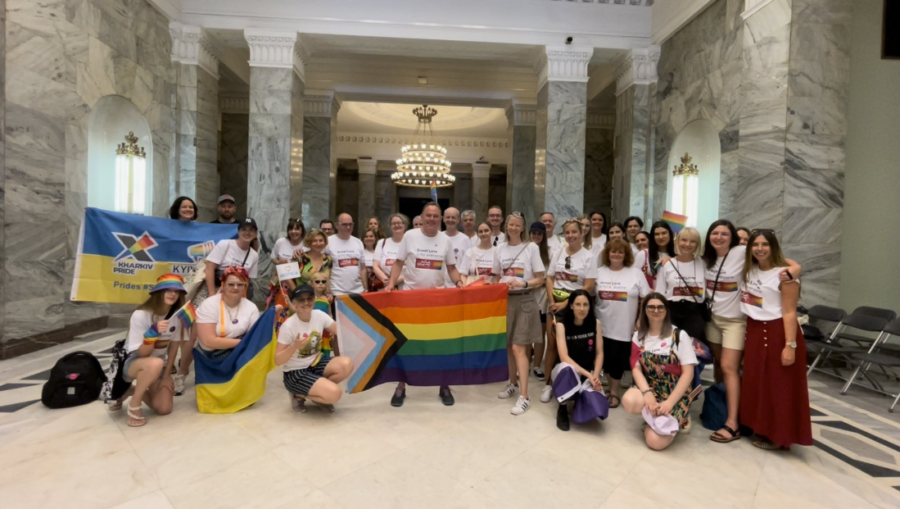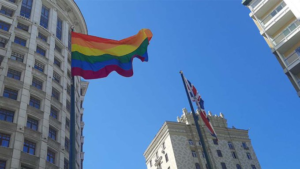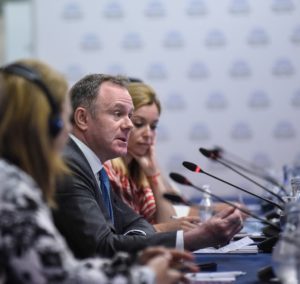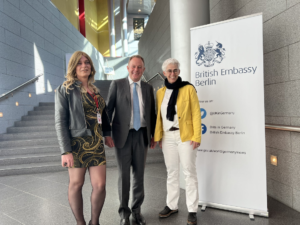23rd December 2022 United Kingdom
A year of contrasts: PM’s Special Envoy for LGBT+ rights reflects on global events in 2022

2022 was a year of contrasts for LGBT+ rights. I often talk about two worlds of rights: one in which conditions seem to be going backwards for LGBT+ people, but another in which progress is being made.
It’s impossible to ignore the awful things that have happened this year. Two people were killed in Norway on eve of Oslo Pride; two were killed outside an LGBT+ venue in Bratislava; five were killed in Club Q in Colorado Springs; and of course there are many more people around the world whose murders are not documented or recorded.
State action has repressed rights and licensed violence. In Russia this month, President Putin signed new legislation to broaden “anti-propaganda” laws which undermine the freedom of expression of all Russians but particularly LGBT+ communities. In Ghana, rising homophobic rhetoric has been used to justify a proposed “anti-gay bill”. In every corner of the world, where democratic freedoms are under threat, LGBT+ communities often become the first target.

It’s hard not to be depressed by these and other reverses. But it’s important also to recognise what has been accomplished. Thanks to the work of local activists and lawyers, consensual same-sex sexual activity has been decriminalised in four countries this year: Antigua and Barbuda, Saint Kitts and Nevis, Singapore and Barbados. A trend is emerging, and more countries are likely to follow. And we’ve seen further progress on equal marriage, with Cuba, Slovenia and Mexico bringing the number of countries where love has won to 33, covering 1.35 billion people.
I’m proud that the UK has been at the heart of this global effort. Many of our missions have quietly but effectively supported the work of LGBT+ groups on the ground, and in June, the UK announced £2.7 million of new funding for grassroots civil society across the Commonwealth. In September, I co-chaired the Equal Rights Coalition conference where 42 member states and over 120 civil society organisations agreed on coordinated action to further global progress on LGBT+ rights, and this month the UK launched a new report on tackling violence against LGBT+ people.

Sometimes our work is most effective behind the scenes, but at other times a public stance is necessary. It was good to see the Minister for Equalities, Stuart Andrew, visibly demonstrate his support for the LGBT+ community at the World Cup. I spoke to our Ambassador in Qatar recently to discuss how we will continue to lobby Qatari officials at all levels and help build a positive legacy from the tournament across the Gulf region.

The two worlds – of freedoms secured and rights reversed – may seem irreconcilable. But the steady steps forward this year show us that, with the right focus and by working together, change is possible. There will be challenges and reversals ahead, and we need to be clearsighted about the threats and robust in defending LGBT+ communities and freedoms under attack. But there will also be advances. Social attitudes will change for the better. More nations will decriminalise. More governments will secure rights for LGBT+ people. More countries will allow equal marriage.
So, in looking ahead, I believe we should be optimistic about the change we can effect, and proud of the work which the UK does. We will continue to work with our partners in civil society and like-minded countries to defend and promote LGBT+ rights, knowing that it is of course the right thing to do, but also that together we can improve the lives of millions of people who only ask that they should be free to love whoever they choose.